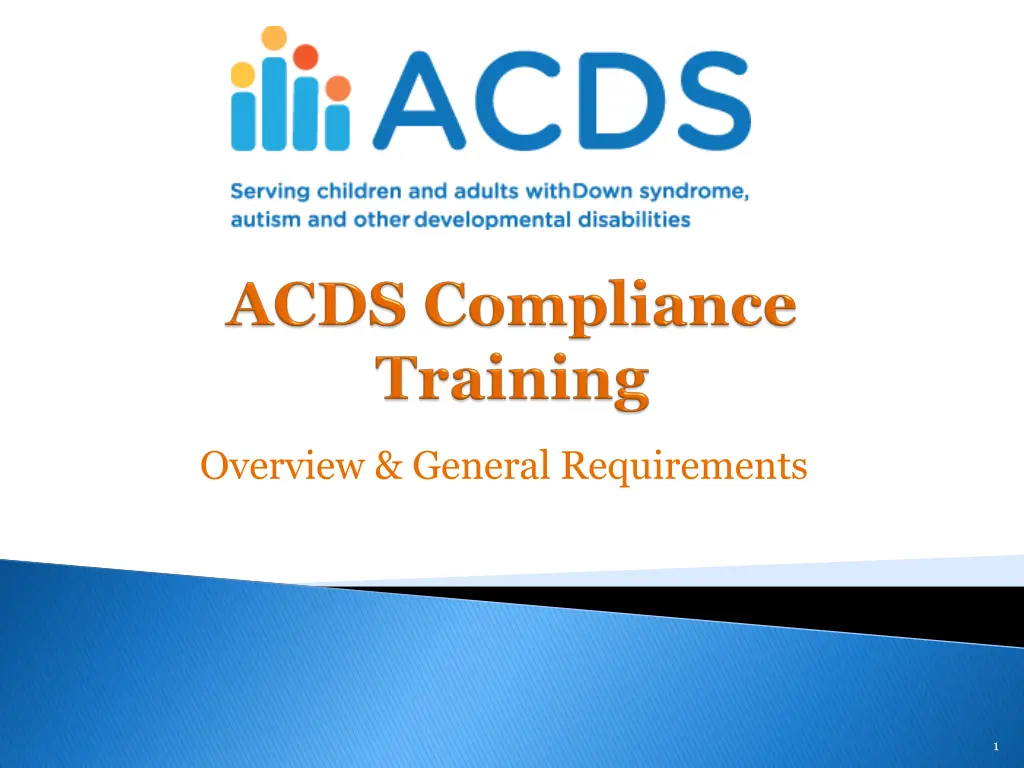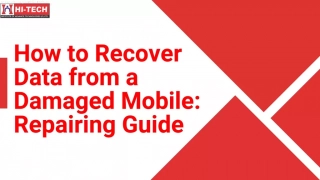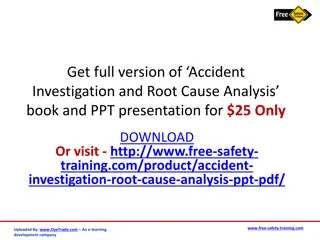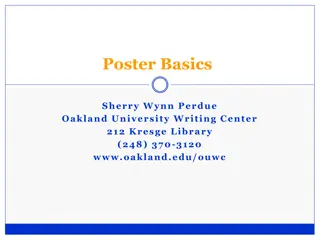
Compliance Training and Fraud Prevention Overview
Learn about the importance of annual mandatory compliance training, the False Claims Act, and how to prevent fraud in healthcare services. Understand the significance of maintaining compliance with government regulations to ensure quality care for clients. Stay informed on identifying fraud and maintaining internal controls to prevent misuse of funds.
Download Presentation

Please find below an Image/Link to download the presentation.
The content on the website is provided AS IS for your information and personal use only. It may not be sold, licensed, or shared on other websites without obtaining consent from the author. If you encounter any issues during the download, it is possible that the publisher has removed the file from their server.
You are allowed to download the files provided on this website for personal or commercial use, subject to the condition that they are used lawfully. All files are the property of their respective owners.
The content on the website is provided AS IS for your information and personal use only. It may not be sold, licensed, or shared on other websites without obtaining consent from the author.
E N D
Presentation Transcript
Annual mandatory training covering our compliance program, False Claims Act education, and our compliance hotline (Report-It). It is all required because our agency accepts Medicaid funds. We certify our compliance program annually to OMIG (Office of Medicaid Inspector General- NYS). All staff are required under NYS to participate in this training due to our compliance agreement with NYS DOH, NYSED, & OMIG. 2
Our success with delivering services reflects who we are and value our clients and their rights to receiving the quality care we provide. Our success with compliance reflects how we value the long-term success of ACDS by making every effort to prevent fraud, waste and misuse. 3
This act requires annual training on the components of fraud to raise awareness. In doing so, it is important to raise questions to your managers/supervisors if you have concerns about documentation that may be wrong or fraudulent claims of services. It is both a State and Federal crime to submit or cause to be submitted, any false or misleading claim for government payment. False Claims Act covers fraud against the government and fraud against our consumers (the children and adults we serve) as well as their families. Civil and Criminal Penalties, as well as a violation of ACDS Policy. 4
Fraud Intentionally submitting false claims for the purpose of obtaining funds we are not entitled to. i.e. billing for services that were not performed, identity theft, performing unnecessary procedures. Abuse/Misuse Intentionally submitting false claims for the purpose of obtaining funds that we are partially entitled to. Waste Unintentional, accidental errors that are a product of billing complexity and lack of training and awareness. i.e. duplicate claims *It s key to understand that fraud is in the eye of the beholder and OMIG s eyes are suspicious and their goal is to recoup funds for the NYS DOH* 5
A material (significant) false statement is made by an individual 1. The statement is made knowing that it is false 2. The victim believes it 3. Damages result to the victim as a result 4. 6
Failure of internal controls create opportunities for fraud Some warning signs: Failure to follow policies & procedures Weak or ineffective internal controls Circumventing of procedures Bending or breaking rules Overriding required reviews & approvals (paper logging) 7
Every employee and contractor has the obligation to report fraud, waste & misuse. Failure to report may lead to discipline. No one may retaliate against you for reporting, in good faith. Reports may be made to your supervisor, the Compliance Committee or the Chief Compliance Officer. Anonymous reporting mechanisms are set up (see next slide). 8
Anonymous reporting Website and phone number Posted at every work site Use to submit a report if you feel uncomfortable making a face-to-face concern 9
Our respective plans of care need to be viewed as the prescription for required services. Life plans, Staff Action Plans, IFSPs, and IEPs. It is your responsibility to ensure that all Plans of Care are timely, accurate, complete and signed. ACDS must be listed as provider and only the Valued Outcomes listed in the plans of care (or scripts) may be used for billing. If there are any problems with the Plan of Care you must request an addendum immediately. Individual prescriptions are also required for delivery of physical, occupational, and speech therapy. 10
By initialing on your documentation of services, you and your staff are stating that the service was actually provided, on that day, by you. All staff initials must be made by the end of your shift, or if using electronic billing, all services must be electronically signed each time a service is delivered. All supervisors, managers & directors need to review documentation regularly to ensure that all services and initials are contemporaneous. Our general policy is that if a service is not initialed on your documentation, it was not provided. Initialing or electronically signing for a service not provided is fraud. 11
Any errors on service documentation must be corrected properly & promptly. Staff may not correct errors without getting proper instructions from management. Staff may only correct their own errors (except with supervisor approval). Corrections of errors must be striked out (one line), corrected and initialed/dated. 12
Failure to communicate with supervisor (and counting on supervisor to not supervise) Undisclosed hiring of friends and relatives Incomplete and inaccurate documentation Rewriting or modifying records Acting beyond scope of position Not making timely bank deposits 13
Relationship Issues: Either Extremely well liked but displaying manipulative tendencies (part of the con game) or Intimidating to staff and other co-workers and/or sympathy evoking Has other staff suspicious Fails to disclose conflicts of interest 1. 2. 3. 14
Signs Indicating Possibility of Fraud related to Behavior Behavior Patterns: Hiding or destruction of documentation ( possible evidence ) Missing documents Handwritten/PC generated receipts Forged signatures that do not match Policies and procedures not followed 15
Signs Indicating Possibility of Fraud Related to Lifestyle Prior history of fraud Prone to vices: drinking, drugs, gambling Lacks discipline Has a bad reputation Sudden inheritance Has excessive amount of cash Bounces personal checks 16
As part of the Corporate Compliance Program, we are also trying to combat identity theft by complying with policies and procedures that help us to detect / prevent identity theft. We need to be aware of patterns, practices, or specific activities that indicates the possible existence of identity theft. Your detailed, department-level trainings should already have common-sense protections against identity theft. 17
ACDS has instituted this Corporate Compliance Program. And participation is mandatory! 18
Every staff member must: Acknowledge receipt of Compliance Training. Read these documents and agree to conduct yourself in conformity with all of the requirements, to adhere to the spirit and letter of our Code of Ethics, and to cooperate with management in carrying out the objectives of our compliance program. Agree to report any conduct by any Agency personnel that may constitute a violation of any law, rule, regulation or professional practice applicable to ACDS. 19
Attend Compliance Training Annually Read the given Code of Ethics, Conflict of Interest Policy & Whistleblower Protection Policy After attending & reading, sign acknowledgement receipts and return them to the Compliance Committee (Via Paycom) This is our best evidence that you are aware of your compliance responsibilities 20
Become familiar with the 8 elements of our Corporate Compliance Program. Recognize that knowledge is power. Use your power to combat fraud, waste, and abuse. You will then be ensuring the continuing success of our agency in providing quality services to our students, residents and other consumers. 21
Written Code & Standards include: Compliance Expectations (Code of Ethics) Compliance Standards (Policies & Procedures) False Claims Act Policy 22
Perform your duties in a professional, courteous manner towards 1. co-workers, service recipients, and others who deal with ACDS. Create a safe and secure work environment. 2. Be a good custodian of ACDS Property. 3. Maintain privacy and confidentiality for those people we serve 4. (and their families). Maintain privacy and confidentiality for the agency, its services 5. and methods. Support open and prompt communication. 6. 23
Billing is considered a high-risk activity for ACDS because of the potential of receiving improper payments or in other words, receiving money for which we are not legally entitled. Billing and coding must be done 100% correctly. There is no room for error. That means that there must be checks and balances in place to assure that no billing request is forwarded to Fiscal that does not have all the requirements for billing in place. This includes a service rendered in accordance with Federal and state regulations with supporting documentation in the form of assessments, treatment plans, progress notes, etc. We must suspend billing if for any reason it does not comply with the program and payment standards in regulation. 24
The only obstacle to billing correctly is for the service provider, program management, and Fiscal to be careless in their duties. Please commit to do your work completely, accurately and timely. Report problems quickly and completely! 25
Business practices cover business transactions, business records, cost reports, purchasing, conflicts of interest, payments, gifts and hospitality. Follow Agency policies related to these topics: Do not alter records without supervisory approval. Never back-date records. Record retention regulations. HIPAA & FERPA privacy and security standards. 26
Compliance Standards Consequences & Enforcement Failure to comply with the False Claims Act(s) and Whistleblower Protection Policy are violations of both state and federal law. Providing false information to state and federal government is a crime. Violations are enforceable against both ACDS and its staff. ACDS expects complete truthfulness and transparency when dealing with state and federal governmental agencies. 27
When you sign your acknowledgements today, you are attesting to your understanding of / consent to your compliance responsibilities. This training is only effective if you feel like you have learned enough about compliance to act if necessary. 28
Your Compliance Committee: Michael Degrottole (Associate Executive Director/Chief Compliance Officer), Chris Campbell (HR), and Angela Ninivaggi (HR), Erica Lepurage (Director of Adult Services) The Compliance Committee is compiled of a team of ACDS Employees committed to ensuring compliance agency wide Our duties: Conduct the compliance training/ educate staff on Corporate Compliance Oversee the implementation & day-to-day operation of our Corporate Compliance Program. Supervise the compliance hotline and address individual concerns, as they are raised. Work with senior management to ensure that we are up-to-date on relevant regulatory changes. Report to our Executive Director and our Board of Directors. Reviews agency compliance with laws and regulations impacting service delivery and billing standards. 29
Open Communication Our Compliance Program encourages all staff to actively participate in our compliance efforts. All staff are encouraged to bring their compliance concerns and questions to their supervisor, Chief Compliance Officer, or the Compliance Committee. Confidential & Anonymous Reporting Through direct, confidential contact with the Compliance Committee/Chief Compliance Officer. Through our dedicated Compliance Hotline report it 30
Staff who commit substantiated violations of our Code of Ethics or who are deemed to be non-compliant with relevant laws, regulations, and ACDS policies will be subject to discipline, up to and including termination. 31
ACDS must ensure that we are compliant by continually doing self-audits and monitoring. Do you check your own work? This includes a system to routinely identify compliance risk areas. 32
Violations related to fraud, waste, abuse, financial matters, and confidentiality must be reported to the Compliance Committee/Chief Compliance Officer. Violations of our Employee Handbook must be reported to Human Resources. We must never allow a detected offense to go uncorrected. 33
Our Compliance Program prohibits retaliation and intimidation in any form, against any staff who, in good faith, reports possible unethical or illegal conduct. Anyone found to participate in such retaliation will be subject to discipline up to and including termination. 34
Beware! Even subtle changes in behavior can be perceived as retaliation. Staff can be held personally liable and subject to fines and criminal penalties including prison. We must take action or staff will not report because nothing ever changes . Do not investigate on your own. Those who bring issues to management s attention should be commended. 35
Please contact your supervisor and/or the Compliance Committee/Chief Compliance Officer as soon as there is even a suspicion that something may be wrong. Do not investigate on your own. 36
To receive credit for this Corporate Compliance training, please look for a checklist in Paycom labeled: COMPLIANCE TRAINING DOCUMENTS This will have the following documents online for you to fill out and sign/complete: 1. Compliance Training Policy & Acknowledgement 2. Code of Ethics Policy & Acknowledgement 3. Conflict of Interest Policy & Acknowledgement Please make sure you check ALL boxes on your forms Please make sure you have signed in (First and Last Name) on the Zoom chat box 37






















